The Evolution of the Anti-War Film, Part Three: The Big Parade
Travis LeBlancYou can watch The Big Parade in its entirety here.
Released in 1925, The Big Parade would go on to become the 2nd largest-grossing film of the entire silent film era. Only Birth of a Nation made more money. The Big Parade was so popular that it played in some theaters continuously for a year and at the Astor Theater in New York for two years. It would be MGM’s largest grossing movie until Gone with the Wind in 1939, which is really saying something, considering that MGM was by far the most profitable studio of the 1930s.
MGM production chief Irving Thalberg’s original plan was to purchase the rights to the successful anti-war stage play What Price Glory? Alas, Thalberg learned that the rights had already been purchased by Fox, who released their adaptation in 1926.
https://www.youtube.com/watch?v=m7w1gUmaaQg
Instead, Thalberg hired Lawrence Stallings, who co-wrote What Price Glory?, to write an entirely new screenplay. The result was The Big Parade, which would begin Stalling’s 30-year career as a screenwriter. Stallings was a Marine veteran-turned-writer who found great success with his autobiographical novels and plays about his experiences in the Great War. Much of The Big Parade is semi-autobiographical, including losing his leg at the Battle of Belleau Wood.
The Big Parade was released in November 1925, roughly halfway between the release of the still very propagandistic The Four Horsemen of the Apocalypse and the ultra-bleak All Quiet on the Western Front, and it shows. Thematically, it seems to fall right in the middle of those two films. It contains some of the elements of The Four Horsemen of the Apocalypse but without the wartime propaganda. The Big Parade also has some set pieces that would later be borrowed by All Quiet on the Western Front, but it is not anywhere near as dark as that later film.
Not only does The Big Parade not contain the wartime propaganda elements of The Four Horsemen of the Apocalypse, to a large extent, the movie is a criticism of wartime propaganda. Where Rudolph Valentino’s character in The Four Horsemen of the Apocalypse joins the army as a matter of honor, in The Big Parade, John Gilbert joins the army as a result of peer pressure. The Big Parade is the story of a young man who was seduced by the siren song of war hysteria, but by the end, you are left wondering if any of it was worth it.
As the film opens, we are introduced to the three male leads. There is a Slim, a Southern construction worker who is perpetually chewing tobacco. Next, there is Bull, who is an Irish bartender from New York City. Finally, we have the star of the movie: Jim Apperson, played by John Gilbert.
Jim is the son of a wealthy industrialist and totally directionless. He doesn’t work and has no intention of starting. He is happy to waste his life (and his father’s money) doing nothing but spending time with his friends and his girlfriend Justyn and having fun. This is much to the annoyance of Jim’s father, who would like Jim to be more like his older brother Harry, who has already taken a position at his father’s mill.
Jim learns from his mother that the United States has entered into the Great War and there is a mad rush for enlistment. His mother is worried sick that Jim is going to enlist. Jim reassures her that he has no intention of doing so, and in fact, finds the idea laughable.
Jim goes out to his car to go for a drive and is greeted by his girlfriend Justyn, whom he has been in love with since childhood. “Aren’t you thrilled that we’re going to war?” she asks. Jim tells her that he is not, to which Justyn responds: “You’ll look gorgeous in an officer’s uniform! I’ll love you more than ever then.” It is here that the first seed is planted in Jim’s mind that maybe enlisting would be a good idea. Jim kisses Justyn goodbye, gets in his car, and drives away.
The next intertitle tells us “What a thing is patriotism! We go for years not knowing we have it. Suddenly, martial music! Native flags! Friends cheer! And it becomes life’s greatest emotion!”
Jim is forced to stop his car when he finds his path blocked by a big parade celebrating the United States’ entrance into the war. At first, Jim is annoyed at this inconvenience. But as he watches the parade go by, the formerly apathetic and nihilistic young man slowly finds himself getting into the patriotic spirit. Before long, he is smiling and tapping his feet to the marching band music. A car full of Jim’s friends pulls up. They are on their way to enlist and beckon for Jim to come with them. After some hesitation, Jim does.
When Jim returns home, he doesn’t have the heart to tell his mother that he has enlisted. His father comes in and tells Jim that now that the country is at war, he will tolerate his idleness no longer. The demands of war mean that his mill will now be busier than ever. So Jim’s father gives him an ultimatum: start working or get out of his house. But then Justyn comes in and spills the beans that Jim has enlisted. Justyn, Jim’s father, and Jim’s brother are overjoyed and beaming with pride that Jim will be going to war, but Jim’s mother is heartbroken.
Jim enters the army and gets shipped off to Champillon, a tiny farming village in northern France with a standard of living only marginally above the Third World. He befriends two working-class guys: Bull, the hardnosed New Yorker, and Slim, the Southern simpleton. Much of the rest of the movie is a fish-out-of-water story. Jim has never done any work and suddenly has to do exhausting physical labor. He’s an American in a foreign country where he doesn’t speak the language. He’s a rich kid who suddenly finds himself mixing with the hoi polloi.
Because there are no barracks in Champillon, Jim finds that he and his unit will be sleeping in the attic of a barn. But before they can go to sleep, they have to clean the place up, which involved hours of shoveling manure. That night, Jim receives a package from Justyn. Inside, it contains a cake she has made him and a letter. The letter reads “I wish you could be here but the thought that you will soon be leading your men into battle fills me with pride. I suppose the fragrance of beautiful flowers fills the air of your picturesque surroundings.”
Now, Justyn was one of the main people responsible for pressuring Jim into enlisting, but from her letter, it is clear that she had absolutely no idea what she was sending him off to. Jim is not the leader of any men, he’s living in a most un-picturesque barn, and the only fragrance in the air is that of manure. It’s as if she thought she was sending him off to the France of her romance novels.
As for the cake, Slim and Bull gaze lustfully at it. Jim feels compelled to share it with them lest he appear selfish. Outside of the army, Jim is a rich kid and part of the social elite, but in the army, he is the outsider. However, traveling across the Atlantic, the cake has become so hard that he is unable to cut it with a knife. He ends up having to break the cake over his knee into three pieces. He gives himself the smallest piece, again, to avoid looking selfish. This is all part of the process where Jim, far out of his comfort zone, learns to find kinship with people very different from himself. Within the context of the 1920s when the specter of communism was very real, it would have been important to show examples of the rich and the working class finding friendship with each other.
A great deal of the movie deals with a budding romance between Jim and a local peasant girl named Melisande, played by French actress Renée Adorée. This is a classic WWI trope: the American doughboy and the French peasant girl. The 1926 film What Price Glory? involves a love triangle where two doughboys compete for a French innkeeper’s daughter. In 1929’s Marrianne, Marion Davies plays a French farmer who is engaged to be married to a French soldier, but then falls for an American doughboy and has to choose. The 1930 film Half Shot at Sunrise by the criminally underrated comedy duo Wheeler & Woolsey (think Marx Brothers but gentile) was about two doughboys who go AWOL in order to chase French girls. As recent as 2006, the movie Flyboys features a subplot where James Franco falls in love with a local French peasant girl. It’s a trope as old as the war itself. There were several popular wartime songs about American soldiers (and female nurses) finding love in France.

Having a subplot like this will make your WWI story more interesting because it raises the stakes for the hero. America was never under any threat of being conquered by Germany. Most Americans signed up for the war for ideological reasons, as a matter of pride, or for a bit of adventure. But if the American hero falls for a local French girl, that makes it personal. Now, he has to fight the Kaiser’s men in order to protect the girl. Who knows what those villainous Huns would do if they got their grubby hands on her! One shudders to think!
This was actually a large put of the wartime experience for many American doughboys. Due to the outrageously high amount of casualties suffered by France in the Great War, there was a huge gender imbalance in France: a lot more French women of marrying age than French men. In addition to this, American soldiers were paid more and received more generous rations than other Allied soldiers. Both of those things gave American soldiers a big advantage over British and French soldiers at getting women, which caused a great deal of resentment.
It may not be so anymore, but men of the Anglosphere have long had a fascination with French women, as they were seen as more free-spirited and unencumbered by stuffy Victorian modesty. Even as a kid, I remember being blown away by stories about how they had topless beaches in France. Now that we live in the era of OnlyFans, where thousands of teenage girls all over the world buy houses with the money they made selling pictures of their vagina to Middle Eastern men on the internet, the idea of a topless beach sounds very quaint. But as a youth, I remember saying “Whoa! You mean in France, women will walk around topless and not think anything of it? Golly, I need to go to France!”
You see this is The Big Parade. Jim gets an idea that if he can acquire a barrel, he could turn it into a makeshift shower by hanging it up in a tree and making a few modifications. It is on his way back to camp with the barrel that he first meets Melisande. After building their makeshift shower, Bull and Slim begin bathing nude underneath. Melisande then comes out and starts laughing. She is amused by their clever contraption and completely unfazed by the sight of their naked bodies. When the men see that they are being watched by a woman, they start freaking out. Slim and Bull run away with their Protestant modesty. Melisande is not a loose woman (she later punches Jim for trying to kiss her without permission). She is just a normal French Catholic peasant girl, and is genuinely confused by the men’s panicked response to her being there. Nudity is not a big deal for her.

Jim and Melisande manage to fall in love with each other despite not being able to speak each other’s language. They communicate through pantomime, and in one scene, pass an English-French phrasebook back and forth to express their feelings for each other. They have no idea what the other is saying most of the time, but they enjoy each other’s company nonetheless. In a way, silent film is the ideal medium for portraying this sort of romance.
Jim and Melisande are mutually exotic to one another. One of the most famous scenes from The Big Parade is one where Jim tries to teach Melisande how to chew gum, an American novelty. He struggles to communicate to her without words that you are not supposed to swallow the gum.

Things between the two start to get serious as they spend more and more time together and eventually kiss under the moonlight. But soon after that, he receives a letter from Justyn with a photograph. The letter reads “I am beginning to be frightened by the thought that perhaps you have forgotten me. Then I remember how sincere you were and that we are engaged to be married. If only the letters which I know you write would reach me and tell me that you remember. I am waiting for you.”
The fact that Jim and Justyn are engaged to be married is not only a secret that Jim kept from Melisande. It is also a secret that was kept from the audience until this point. This here is a plot twist. Melisande walks by, sees Jim, and sits down next to him. She looks at the picture of Justyn, and at first thinks it might be his sister, but eventually puts two and two together. Melisande senses that this is a source of guilt for Jim, so she puts on a brave front and pretends to be okay with it (the French are notorious for their open-minded attitudes towards infidelity). But afterward, she runs off and cries, knowing that their relationship has no future.
Just then the bugle calls letting the doughboys know that it is time to go off to battle. Here is another one of The Big Parade’s most famous scenes. Jim climbs into a truck preparing to leave for the front and Melisande frantically searches for him in the sea of marching doughboys. At last, she finds him and they kiss passionately. Jim promises to return, but Melisande, having lived through four years of war, knows that there is a good chance that he going off to die. She grabs Jim’s leg for dear life as he tries to climb back in the truck. Once he is in the truck, she grabs onto the truck. She continues holding on to the truck even as it starts moving until the truck is literally dragging her along. At last, she lets go.

In a lot of ways, the relationship between Jim and Melisande is an exploration of the dichotomy between the Catholic and the Protestant, the Latin and the WASP, and their respective ways of expressing affection. Melisande’s ostentatious display of affection in this goodbye scene would have been considered extremely undignified for WASP women, who are expected to be reserved and coy, coquettish at most, but the Latin Melisande is completely unrestrained.

The doughboys’ trip to the battlefield begins with a long drive by truck and then endless marching, which is interrupted only briefly by a stray German fighter plane. The troops are allowed some rest before entering Belleau Wood. As they enter the forest, they encounter progressive German resistance beginning with snipers, then machine-gun nests, field guns, and gas attacks, before finally arriving at the cratered hellscape of the frontline trenches with artillery shells raining down all around them.

The doughboys charge into no man’s land until they can advance no further. Jim, Bull, and Slim are forced to take refuge in a shell crater. Pinned down, they can neither advance nor retreat without getting shot by the Germans. They have no option but to sit in the shell crater and wait for circumstances to change. There is a similar scene to this in All Quiet on the Western Front, where the protagonists are forced to wait in a shell crater for an excruciating amount of time until reinforcements arrive.
After night falls, a messenger finally arrives and informs the trio that orders are for one of them to go take out a German mortar position. Jim, Bull, and Slim argue amongst themselves as to who should go. All three want to do the dangerous mission to spare their friends. Eventually, it is decided that Slim will go. Slim crawls out of the trench, takes out the mortar crew with his bayonet, but is shot by German machine gunners as he is returning to the crater.
From their crater, Jim and Bull can hear Slim cry out in agony. They try yelling back to him and the messenger returns to tell them to be quiet. They ignore the messenger and continue calling out to Slim. Then an officer shows up at their crater and tells them “Cut that out! You’ve got orders!” and leaves.
Jim is indignant at this request as he continues listening to Slim cry out.
Orders! Orders! Who the hell is fighting this war: men or orders? I came to fight, not wait and rot in a lousy hole while they murder my pal! Waiting! Orders! Mud! Stinking stiffs! What the hell do we get out of this war anyway? Cheers when we left and when we get back. But who the hell cares after this?
Bull tries to calm Jim down, but it is no use. Jim is determined to go out and bring back Slim. Seeing that Jim can not be dissuaded, Bull resolves to go out with him. When they reach Slim, they find that he is dead and Jim’s rage intensifies. “They got him! They got him! GOD DAMN THEIR SOULS! You got my Buddy, you b—–s! Now, COME ON!” That was some very strong language by the standards of 1925.
Jim and Bull charge forward and take out two German machine-gun nests before Bull is fatally shot. Jim is shot in the leg by a German rifleman, but manages to shoot the rifleman back. However, the rifleman is still alive and Jim intends to finish him off. Because he is out of ammunition, Jim detaches his bayonet and begins slowly crawling towards the German.
Jim finally reaches the German and is about to plunge the blade into his chest, but looking into the German’s eyes, he suddenly recognizes his humanity. The German’s face is not one of evil. He’s just a regular guy like Jim. Besides, the German has been fatally wounded and will be dead soon anyway. Jim can no longer bring himself to deliver the killing blow. The dying German requests a cigarette which Jim gives to him. The German passes away before he has a chance to smoke it. A similar scene in All Quiet depicts the German protagonists being forced to share a shell crater with a dying Frenchman. It is even more drawn out and painful to watch than this one.
At this moment, the Americans launch an offensive, and this is the climax of the movie. The production here is lavish and real visual feast. Explosions go off everywhere, a cast of thousands shown going over the top, and the German defenses melt away under the American onslaught. This would have been the biggest and most realistic battle scenes anyone had ever seen up to that point in history and would remain so for some time. None of the battle scenes in All Quiet on the Western Front can hold a candle to it. Unfortunately, there are no clips of this scene on YouTube. You’re just going to have to watch the movie.
Jim wakes up in an army hospital. He starts chit-chatting with a patient next to him and asks about his injury. The patient tells Jim that he was injured fighting Champillon, which is where Melisande lives. Despite his injured leg, Jim escapes from the hospital with a crutch, flags down a truck, and hitches a ride to Champillon. When he arrives there, he finds the village empty and the buildings shelled. It then cuts to Melisande, who is walking south with other war refugees.
It should be noted that at this point, Jim’s leg is still intact. In the next scene, Jim’s leg is amputated. This makes one wonder if he injured it further in his search for Melisande and that maybe he would have been able to keep it if he had stayed in the hospital, or if it would be amputated anyway and they just hadn’t gotten around to it yet.
Jim returns to America. Before he gets back to his house, it is revealed that Justyn is now in a romantic relationship with Jim’s brother. The snake! In her defense, Jim had long since stopped writing to her and had himself fallen in love with someone else. The scene where Jim returns home on crutches with an amputated leg is a real tearjerker. Jim’s mother has a flashback of Jim’s life as a baby, a toddler, a young man, and now, here is her baby boy with one leg. Upon seeing Justyn again, Jim knows he no longer feels the same way about her. Jim tells his mother about Melisande, and she tells Jim that he needs to go back and find her.
The final scene opens with Melisande outside plowing a field in full makeup (look, it’s just a movie). She is chewing gum as Jim taught her, which lets the audience know that she has not forgotten about him. Off on the horizon, she sees the silhouette of a man hobbling towards her. Melisande, sensing it may be Jim, goes running after this figure. Sure enough, the figure is Jim, who now has a prosthetic leg, and the happy lovers are reunited once again.

So that’s The Big Parade. I did not enjoy this movie as much as The Four Horsemen of the Apocalypse, but it’s not bad. I will say that it is much more effective as anti-war propaganda. The only good thing John Gilbert’s character got out of the war was Melisande, but it came at a hefty price. He lost his leg, his fiancé, and he has to live the rest of his life with the memory of watching his friends Bull and Slim killed on the battlefield.
Once could interpret The Big Parade as a “coming of age” story. In a lot of ways, John Gilbert learns to be a man during the war. But unlike The Four Horsemen of the Apocalypse, it lacks the redemption angle, which is what I believe undercut much of The Four Horsemen of the Apocalypse’s anti-war message. Like Valentino in that movie, John Gilbert begins the movie as a lazy bastard, but as far as I can tell, that is the worst of his crimes. He’s otherwise not particularly degenerate or immoral as Valentino’s character was. He didn’t require much redeeming.
From an identitarian perspective, there are some themes to like about The Big Parade. Throughout the movie, John Gilbert finds commonality with people outside of his intra-white in-group. He finds comrades in people outside of his economic class in the form of Bull and Slim. He finds love with a white woman of a different culture with Melisande. And with the dying German, he learns to see the humanity of a white person who was meant to be his enemy. I approve of this message.
After The Big Parade, Great War movies became consistently anti-war. Five years later in 1930, there was All Quiet on the Western Front, which was pure and unadulterated anti-war. However, there are a few other anti-war WWI movies that I will touch on.
First, there is a movie that came out in 1929 called She Goes to War. You can watch it here. I didn’t know this movie existed until I started researching this article. She Goes to War stars Eleanor Boardman, who at the time was married to King Vidor, who directed The Big Parade. It’s worth commenting on for both its utter brutality and its sheer ridiculousness. It’s also noteworthy for nerds of Hollywood lore for being Alma Rubens’ last film. Alma Rubens is legendary for being one of the most notorious junkies of the silent era and one of Hollywood’s first major drug casualties. She would die two years later in 1931 at age 33.
She Goes to War is what is called a “goat gland.” Some movies went into production during the silent era, but by the time they were finished, they were well into the sound era, leaving studios with an obsolete movie. Sometimes they would just scrap the whole movie and make it again with sound. If you’ve ever seen The Aviator, that’s what they did with Howard Hughes’ Hell’s Angels. Sometimes they would make it again and release both versions (which they did with All Quiet on the Western Front), as there were still some theaters not yet equipped for sound. But sometimes, they would just insert a few talking scenes or musical numbers into an otherwise silent film. Such a movie is called “goat gland,” named after a quack remedy for impotence that was popular at the time.
She Goes to War is about a woman whose alcoholic fiancé gets drafted, so she disguises herself as a man and joins the army so that she can follow him. That’s the ridiculous part. The premise is absurd on its face, and Boardman is laughably unconvincing as a man with her soft features and pencil-thin eyebrows. That said, that battle scenes are pretty savage for its time, and the fact that you experience the war through a woman’s eyes is a novel twist. The original 89-minute version is lost. The only version of this film that exists today is an extremely edited 50-minute version that was released in 1939 as anti-war isolationist propaganda.
The intro to the 1939 version reads:
We present for thoughtful consideration the vivid picture of the grimness and reality of the last war. It is not propaganda. We take no sides, but simply set forth TRUTH embodied in a tale. You will find heart-ache and humor, courage and cowardice, horrid death and high romance, all blended together in this greatest picture of the World War of 1914-1918. . . This is a story of twenty-five years ago when Americans were fighting in Europe. Will we fight there again? That is the burning question of today. In a free country such as ours, public opinion — your opinion — will decide it.
Some real time capsule hours. Despite the claims of neutrality, there is nothing in She Goes to War that would make you say “That looks like fun. Let’s do that again.” Its re-release was clearly intended to persuade people into an isolationist position. Unfortunately, much of the story was cut out, including all the intertitles and much of the plot. As a result, the story doesn’t make a whole lot of sense, but it’s still worth checking out as a historical curiosity.
When I said that All Quiet on the Western Front was the greatest anti-war movie of all time, I was being a little America-centric. In my opinion, it is the greatest American anti-war movie. If you want to add Europe into the mix, a few movies come to mind.
Westfront 1918 is a hell of a movie. You can watch it here. It’s very similar to All Quiet on the Western Front, came out the same year, and is arguably even darker. Where All Quiet on the Western Front was made from the German perspective, Westfront 1918 is from the German perspective and has the advantage of having been made by actual Germans. G. W. Pabst, who might be best known to American audiences for the films he made with Louise Brooks, was the director.
If for no other reason, Westfront 1918 is worth watching because it has the most detailed depiction of trench warfare tactics which were a lot more complicated than people think and had gotten pretty sophisticated by 1918.

Westfront 1918 was banned by Nazi Germany for being too pacifist. The Nazis made their own Great War movie which celebrated the heroism of the German infantryman. That would be the 1934 film Stoßtrupp 1917 (Shock Troop). You can watch it here.
Some people say that Jean Renoir’s La Grand Illusion is not just the greatest anti-war movie of all time but the greatest movie of all time, period. Orson Welles cited it as his favorite movie. It’s a little too commie for my tastes.
If you would like to know more about the Great War in early film, I recommend episode 4 of Kevin Brownlow’s documentary series Hollywood. You can watch it here.
* * *
Counter-Currents has extended special privileges to those who donate $120 or more per year.
- First, donor comments will appear immediately instead of waiting in a moderation queue. (People who abuse this privilege will lose it.)
- Second, donors will have immediate access to all Counter-Currents posts. Non-donors will find that one post a day, five posts a week will be behind a “paywall” and will be available to the general public after 30 days.
To get full access to all content behind the paywall, sign up here:
The%20Evolution%20of%20the%20Anti-War%20Film%2C%20Part%20Three%3A%20The%20Big%20Parade
Enjoyed this article?
Be the first to leave a tip in the jar!
Related
-
Will There Be an Optics War II?
-
Pour Dieu et le Roi!
-
Counter-Currents Radio Podcast No. 582: When Did You First Notice the Problems of Multiculturalism?
-
Sperging the Second World War: A Response to Travis LeBlanc
-
Der Krieger und der Stadtstaat
-
Civil War
-
The Holocaust Card Can No Longer Be Played
-
Problém pozérů aneb nešíří se snad myšlenky pravicového disentu až příliš rychle?
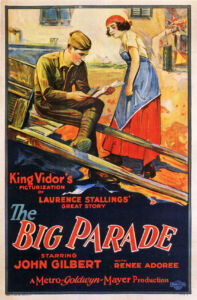


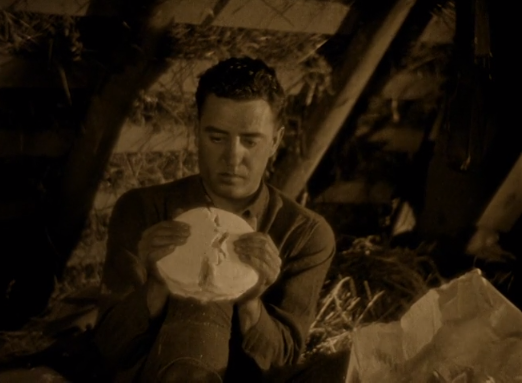
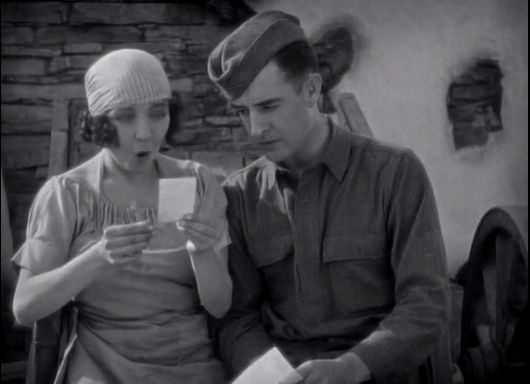
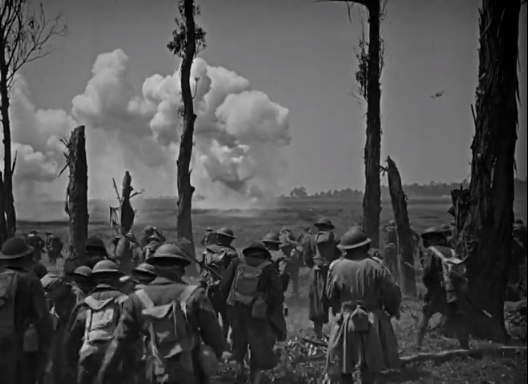
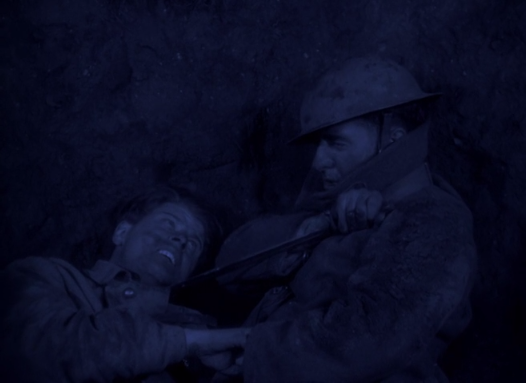
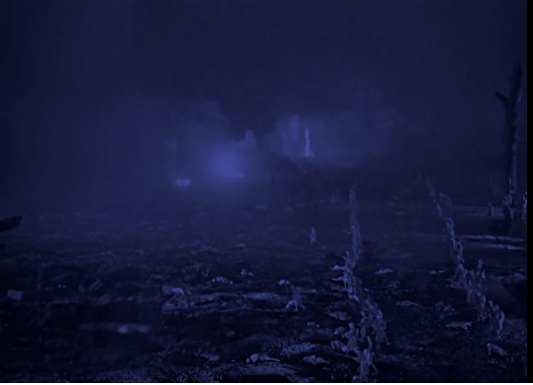
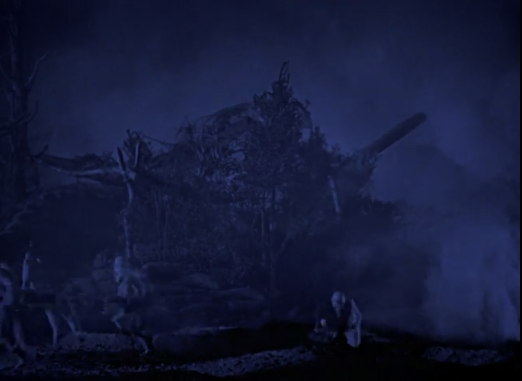
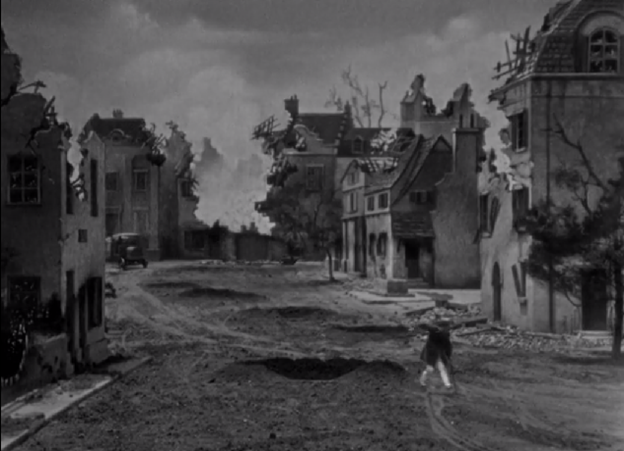
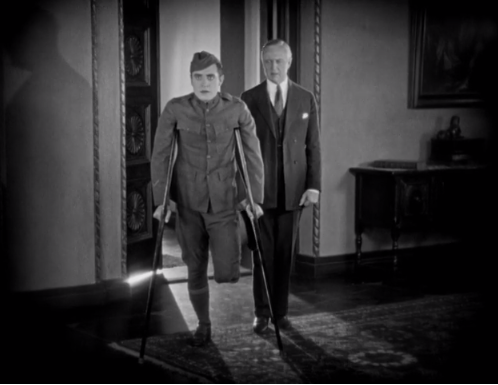
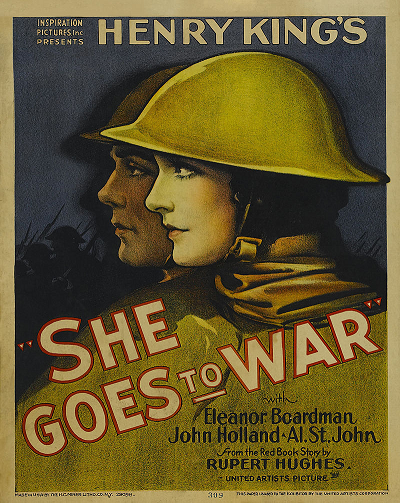
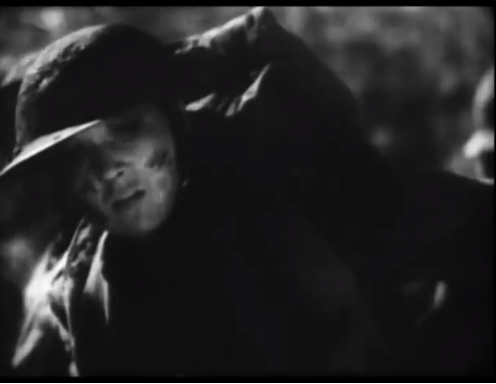
4 comments
“She Goes to War is about a woman whose alcoholic fiancé gets drafted, so she disguises herself as a man and joins the army so that she can follow him. That’s the ridiculous part.”
The movie might be ridiculous, but there were women fighting in the first war.
https://en.wikipedia.org/wiki/Ecaterina_Teodoroiu
That clip from WESTFRONT 1918 starts with a great tracking shot, defying the cliché that early talkies were all “stagey”.
Not all talkies, no. The most “stagey” talkies were musicals adapted from the stage. I saw one called Rio Rita where there were long sections where it was like they just put a bunch of cameras in front of a stage and let the people perform it exactly like they did on Broadway.
I think some of these were deliberately stagey, to give people out in the sticks and idea of what it was like to see a big city stage production. Before they had only read about them. Now they could see and hear it themselves.
Funny thing about early talkies is that at first, the only music that was used was what is called “source music”. Source music is music that the characters on screen could hear themselves, like if a radio was playing or there was a band. It was believed that it would confuse audiences to have music coming out of nowhere. So the use of background music being used for dramatic effect did not come until later.
That might also explain “stagey” talkies. If people knew they were watching a stage musical on film, that would explain the music.
The main explanation for stagey talkies is that early cameras were noisy and had to be enclosed in massive soundproofed booths, which meant that the extremely dynamic and fluid camera work you see in many silent movies was impossible.
Comments are closed.
If you have Paywall access,
simply login first to see your comment auto-approved.
Note on comments privacy & moderation
Your email is never published nor shared.
Comments are moderated. If you don't see your comment, please be patient. If approved, it will appear here soon. Do not post your comment a second time.